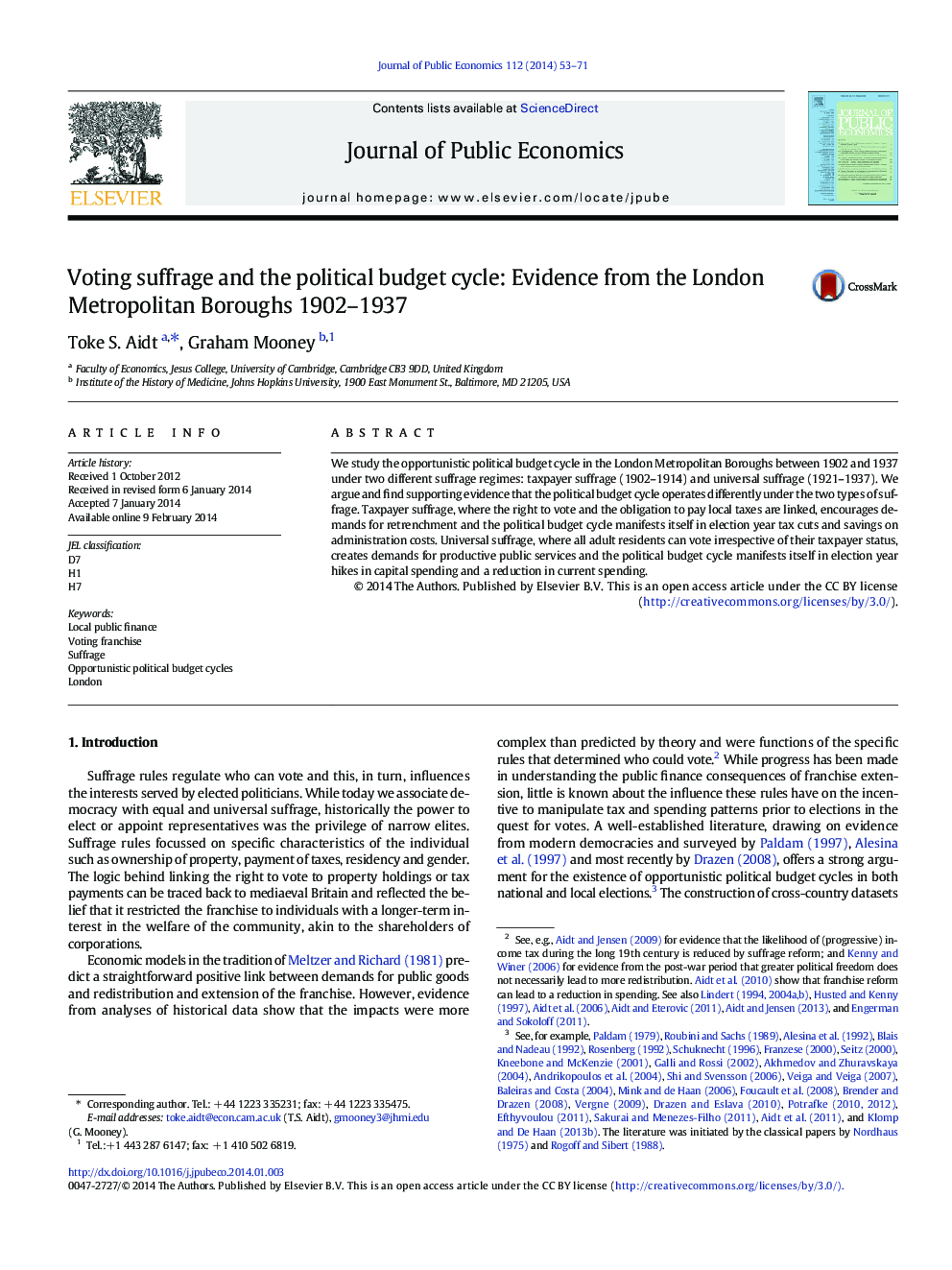| Article ID | Journal | Published Year | Pages | File Type |
|---|---|---|---|---|
| 7370396 | Journal of Public Economics | 2014 | 19 Pages |
Abstract
We study the opportunistic political budget cycle in the London Metropolitan Boroughs between 1902 and 1937 under two different suffrage regimes: taxpayer suffrage (1902-1914) and universal suffrage (1921-1937). We argue and find supporting evidence that the political budget cycle operates differently under the two types of suffrage. Taxpayer suffrage, where the right to vote and the obligation to pay local taxes are linked, encourages demands for retrenchment and the political budget cycle manifests itself in election year tax cuts and savings on administration costs. Universal suffrage, where all adult residents can vote irrespective of their taxpayer status, creates demands for productive public services and the political budget cycle manifests itself in election year hikes in capital spending and a reduction in current spending.
Keywords
Related Topics
Social Sciences and Humanities
Economics, Econometrics and Finance
Economics and Econometrics
Authors
Toke S. Aidt, Graham Mooney,
